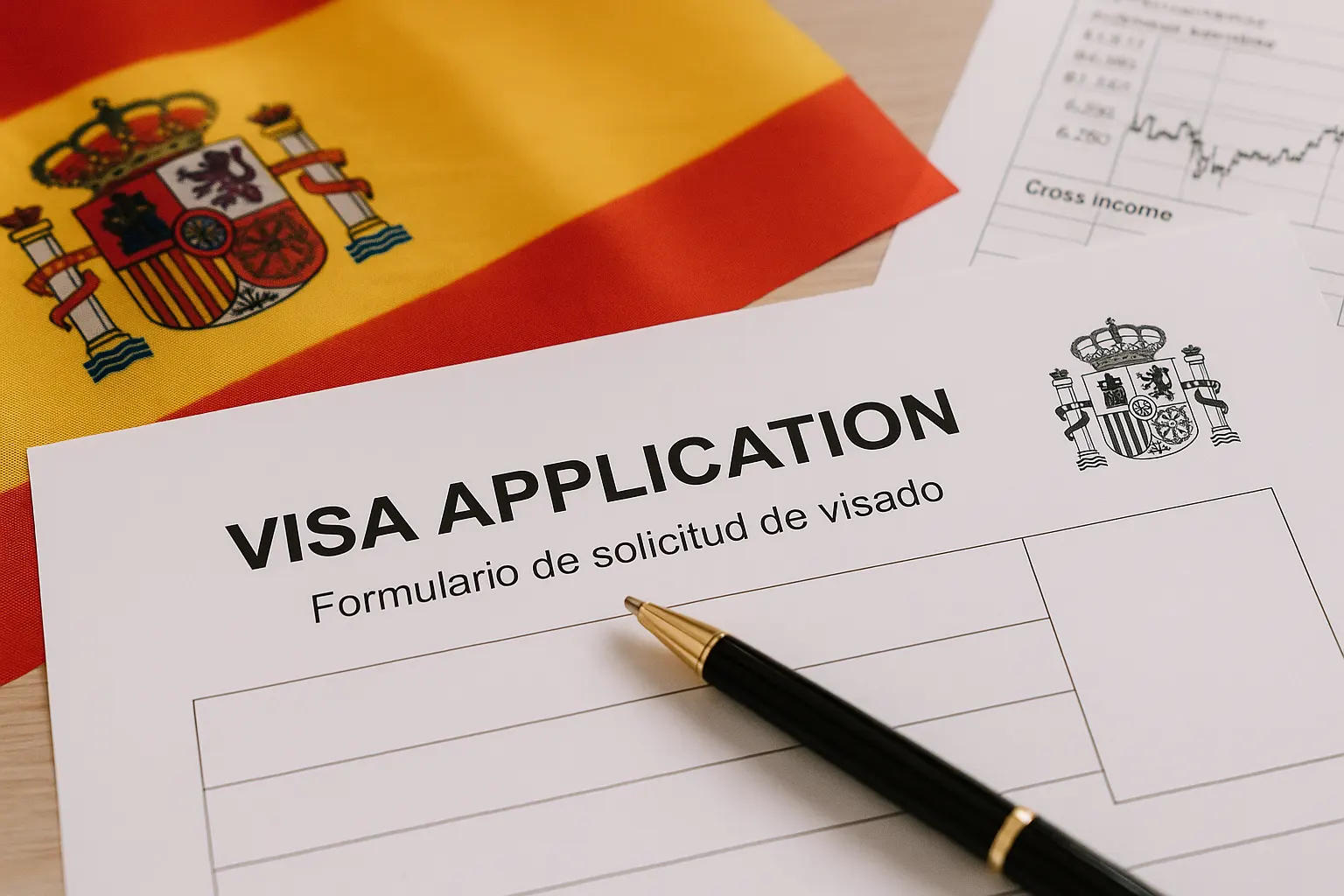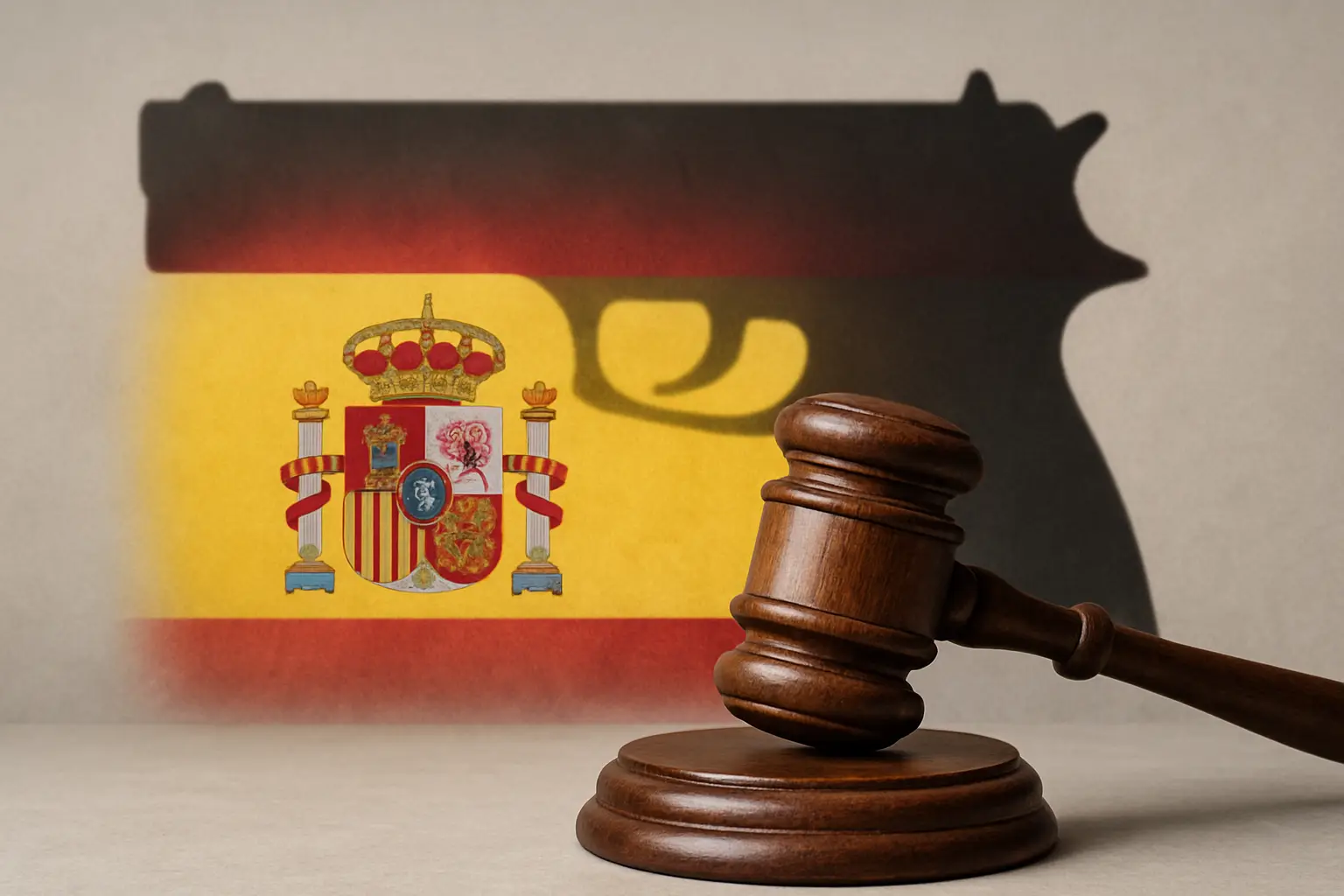The appeal of Spanish real estate continues to attract a significant number of international buyers, with a notable concentration from the United Kingdom. The combination of favorable climate, lifestyle benefits, and diverse property options makes Spain a preferred destination for investment and second homes.
This guide, titled “Buying Property in Spain: Legal & Tax Guide for Foreigners,” aims to provide a comprehensive resource for those considering purchasing property in Spain. Key areas covered include:
- Understanding the legal framework applicable to foreign buyers
- Navigating the property purchase process step-by-step
- Exploring tax implications both during acquisition and ownership
- Assessing various financing options available to non-residents
Foreign buyers often face unique challenges related to regulations, taxation, and procedural requirements. Awareness of these factors is essential to making informed decisions and ensuring a smooth transaction. The information presented here is designed to clarify complex concepts and support prospective investors through every stage of acquiring property in Spain.
In addition to buying, it’s also worth considering the option of renting. A detailed comparison between buying vs renting in Spain, particularly from the perspective of UK and US expats, can provide valuable insights into housing costs, legal steps, and visa requirements.
Understanding the Spanish Property Market in 2025
Current trends in the Spanish real estate market highlight a dynamic landscape for international buyers. Coastal areas like Costa Blanca continue to appeal to investors seeking seaside retreats, while major cities such as Madrid and Barcelona offer bustling urban opportunities.
Regional Price Variations
Average costs per square meter vary across regions, influencing investment decisions. In popular areas like Marbella, Costa del Sol, or Ibiza, prices can range from €3,000 to €6,000 per square meter for prime properties. On the other hand, more affordable options can be found in regions like Valencia or Murcia, where prices may fall between €1,500 to €2,500 per square meter.
Positive Outlook for the Market
The market’s resilience post-pandemic and government initiatives promoting foreign investment have contributed to a positive outlook. With a diverse range of property types and locations catering to different preferences, the Spanish property market remains attractive for international buyers seeking both lifestyle and investment opportunities.
Legal Requirements for Foreigners Buying Property in Spain
1. Obtain an NIE Number
Foreign buyers must secure an NIE number (Número de Identificación de Extranjero) before initiating a property purchase. This unique identification number is essential for all legal and tax procedures related to real estate transactions in Spain. Without an NIE, signing contracts or registering ownership is not possible.
2. Open a Spanish Bank Account
Opening a Spanish bank account offers significant advantages during the buying process. It facilitates:
- Payment of deposits and final purchase price
- Payment of taxes such as Property Transfer Tax (ITP)
- Management of ongoing expenses like community fees or utilities
For those buying property in Spain from the UK or other countries, handling payments through a local bank account reduces currency exchange issues and streamlines financial operations.
3. Consider Cash Purchases and Compliance
Considerations include:
- Buying property in Spain with cash requires proof of funds and compliance with anti-money laundering regulations.
- EU citizens benefit from simplified procedures but still need an NIE number.
- Awareness of pitfalls of buying property in Spain helps avoid legal complications, especially regarding regional differences in property laws.
Understanding these requirements forms the foundation for a smooth and legally compliant property purchase.
Step-by-Step Property Purchase Process in Spain
The property purchase process Spain involves several structured steps designed to protect both buyer and seller while ensuring legal compliance.
1. Property Search and Selection
Begin by identifying suitable listings through agents, websites, or personal visits to preferred areas. Prioritize properties matching budget and criteria.
2. Reservation Agreement
Once a property is chosen, a reservation agreement is signed. This document secures the property temporarily, often requiring a small deposit. It outlines key terms like price and exclusivity period for due diligence.
3. Private Purchase Contract (Contrato de Compraventa)
Following satisfactory checks, the buyer and seller sign a private purchase contract. This legally binding agreement details the full purchase price, payment schedule, and conditions. A larger deposit (typically 10%) accompanies this contract.
4. Due Diligence and Financing
During the contracted period, buyers perform title verifications, property inspections, and finalize mortgage arrangements if financing applies.
5. Completion at Notary’s Office
The final step occurs at the notary’s office where both parties sign the public deed of sale (Escritura Pública). The buyer pays the remaining balance along with taxes and fees related to the transaction’s completion.
6. Registration of Ownership
Post-signing, the new owner registers the deed at the Land Registry to formalize ownership rights.
Each stage impacts the cost of buying property in Spain, from initial deposits to notary fees and taxes. Understanding these steps ensures clarity throughout the process when Buying Property in Spain: Legal & Tax Guide for Foreigners.
Costs and Fees When Buying Property in Spain: A Comprehensive Breakdown
Foreign buyers must consider several costs of buying property in Spain beyond the purchase price. These expenses influence the total investment and vary depending on location, property type, and financing options.
Property Transfer Tax (ITP)
The Property Transfer Tax (Impuesto de Transmisiones Patrimoniales, ITP) applies to resale properties.
Rates range from 6% to 10% based on the autonomous community where the property is located.
Coastal regions like Costa Blanca typically charge between 7% and 10%, while some inland areas may have lower rates.
This tax is calculated on the declared purchase price or market value if higher.
Notary and Land Registry Fees
Notary fees usually amount to 0.5% to 1% of the purchase price.
The notary formalizes the public deed of sale (escritura pública).
Registering ownership with the Land Registry incurs additional costs, generally between 400€ and 600€, depending on property size and price.
Legal Fees
Hiring a lawyer is highly recommended for contract review and due diligence.
Legal fees typically range from 1% to 2% of the purchase price.
Lawyers ensure compliance with Spanish law and help avoid future disputes.
Mortgage-Related Costs (if applicable)
Mortgage arrangement fees can include:
– Opening commission: often around 1% of the loan amount.
– Valuation fee: approximately 300€ to 500€ for property appraisal.
Other administrative fees may apply depending on the lender.
Additional Considerations
Some regions impose a stamp duty (Actos Jurídicos Documentados), which can be around 1.5% of the property price, applicable to new builds.
Buyers should budget for ongoing costs such as community fees or maintenance, separate from acquisition expenses.
Budgeting carefully for these fees ensures clarity about the total outlay required when purchasing real estate in Spain. Understanding regional differences in taxes like ITP helps foreign investors plan effectively.
Tax Implications for Foreign Property Owners in Spain: What You Need to Know
When it comes to buying property in Spain tax, understanding the tax obligations as a foreign property owner is crucial. Here are the main tax obligations that non-resident property owners must fulfill on an annual basis:
1. Local Property Tax (IBI)
One of the primary taxes that non-resident property owners in Spain need to pay is the local property tax known as IBI (Impuesto sobre Bienes Inmuebles). This tax is levied by the local municipality and is based on the cadastral value of the property. It’s important to note that the IBI rate can vary depending on the location of your property.
2. Non-Resident Income Tax
If you have rental income from your Spanish investments, you’ll also be subject to non-resident income tax. This tax applies to individuals who are not residents of Spain but earn income from Spanish sources, such as rental properties. The non-resident income tax rate is generally fixed at 24% on gross rental income.
It’s essential for foreign property owners in Spain to stay compliant with these tax obligations to avoid any penalties or legal issues. Consulting with a tax professional or advisor who specializes in Spanish taxation can provide you with personalized guidance and ensure that you’re meeting all your responsibilities as a non-resident property owner.
Investing in Rental Properties: A Lucrative Opportunity with Legal Considerations
Investing in residential or holiday rental properties in popular tourist destinations across Spain can offer lucrative opportunities for investors. However, it is crucial for foreign investors to be aware of key legal obligations when operating short-term rentals to ensure compliance with local regulations:
Benefits and Risks
Benefits:
- Potential for High Rental Yields: Spain’s thriving tourism industry offers a steady stream of rental income, especially in sought-after locations like Barcelona, Marbella, or Mallorca.
- Property Appreciation: Investing in popular tourist areas can lead to property value appreciation over time, offering long-term financial gains.
Risks:
- Seasonal Fluctuations: Depending on the location, rental demand may vary seasonally, impacting income potential.
- Regulatory Changes: Keeping up with evolving rental laws and tax regulations is essential to avoid penalties or legal issues.
Legal Obligations
Licensing Requirements
Foreign investors must obtain the necessary licenses and permits to legally rent out their properties. Different regions in Spain may have specific regulations regarding short-term rentals.
Tax Compliance
Understanding and fulfilling tax obligations related to rental income is crucial. Non-resident property owners are required to declare their rental income and pay taxes accordingly.
By navigating these legal considerations effectively, foreign investors can capitalize on the opportunities presented by buying property in Spain to rent out.
Advantages and Pitfalls of Buying Property in Spain as a Foreigner: Prospective Buyers Guide
Summary of the main advantages (e.g., straightforward purchase process without restrictions on foreigners) and challenges (e.g., regional variations in taxes and regulations) that international buyers may encounter when entering the Spanish real estate market.
Advantages of Buying Property in Spain as a Foreigner:
- Straightforward Purchase Process: Spain offers a relatively simple and transparent property purchase process for foreigners, with no restrictions on ownership.
- Diverse Real Estate Options: From picturesque coastal properties to vibrant city apartments, Spain provides a wide range of options to suit different preferences.
- Residency Opportunities: Investing in property can lead to residency permits, offering access to Spain’s healthcare and education systems.
Pitfalls to Consider:
- Regional Tax Variations: Different regions in Spain may have varying tax rates and regulations, impacting the overall cost of property ownership.
- Legal Complexities: Understanding local laws, especially regarding rental agreements and property maintenance, is crucial to avoid potential disputes.
- Market Volatility: Like any real estate market, Spain’s property sector can experience fluctuations, requiring careful consideration before making a purchase decision.
Conclusion
Buying property in Spain is a great opportunity for international buyers, but it’s important to have expert guidance to navigate the legal and tax requirements. With professional legal advice, you can make informed decisions and ensure smooth transactions.
NIM Immigration Lawyers, a team based in Barcelona specializing in immigration and real estate law, offers personalized support entirely online. This makes your property purchase journey easier and more convenient.
Make use of these resources:
- Download the comprehensive guide buying property Spain foreigners PDF for an in-depth summary of all key points.
- Contact experienced lawyers who provide tailored assistance remotely.
- Benefit from expertise in Spanish property laws, tax implications, and visa regulations.
Working with qualified experts like NIM Immigration Lawyers protects your investment by addressing the unique complexities that foreign buyers face. Use this Buying Property in Spain: Legal & Tax Guide for Foreigners to confidently move forward with your property acquisition.
To schedule a consultation and receive dedicated support throughout the process, reach out through their online platform.














